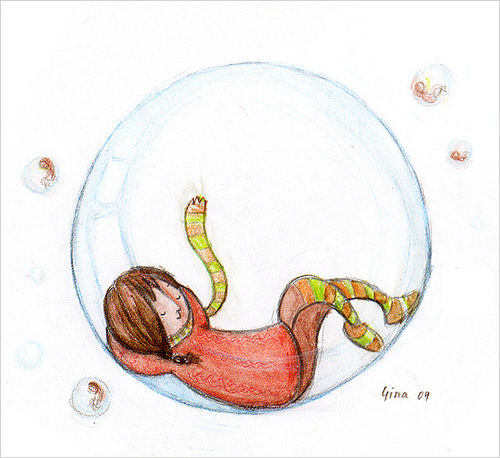Yesterday, and for the past couple of days, my gut has felt pretty twisted up about the stuff I mentioned yesterday. And I was for seriously concerned that I had created a bubble in which everyone’s opinion was the same as my own, that I might have been setting myself up for a complete confirmation of my own beliefs with no consideration of any others.
Brene Brown (I’m in love!!) is starting to give me the language I need to talk about these feelings, and what I felt yesterday following first some arguing, then some unfriending, and much more unfollowing, was definitely shame. Throw my little self-created, opinion-lacking bubble on top and I was legit concerned. So I asked you guys what you thought… you did not disappoint.
I cannot tell you how much I appreciated these two comments, from my beautiful and brilliant friends Aimee and Nicole. So so so much that I asked if they’d mind if I reposted and expounded, because they were worth so much longer of a response than a simple comment reply could allow — they helped me to understand and to be ok with what I had done, the bubble, the story, I had created. To let go of the shame. Ahhhh, sweet relief.
Late last night (maybe not so late Alaska time, but late to me), Aimee said:
Just had this exact conversation with my folks yesterday. I only saw a few “anti-” things and generally I’m against defriending people over politics (though I want to soooo bad!) but they had much much more. Their friends encompass a different age group than mine AND they’re in West Michigan.
I also have a really hard time even considering the opposite viewpoint from my own. To me, it’s a civil rights issue and shouldn’t even be up for debate. I can only hope these people are just really scared of change or whatever they think is going to happen… and when nothing changes (except MORE LOVE all around!) they’ll come around. One can hope! 🙂
And then, this afternoon (same afternoon in Tennessee and Wisconsin, for those keeping track) of the timeline, Nicole said:
As a member of the rainbow club, and a scientist, I came to the same conclusion as you – but long ago. The ugliness you saw on Friday is something I experience every single day, in places you would least expect. I ran for Chair of Diversity on the postdoc council at my place of employment, and my entire spiel about being a lesbian was deleted from the ballot, leaving only a generic sentence saying something like ‘I’ll do my best to include everyone.’ Of course I e-mailed the person responsible for putting together the ballots immediately (it was late, and they weren’t in their office) – and I was given a crap apology about them not knowing my public statement was in fact public, etc etc.
But what to do? I like my friends and family because they are diverse and they all have their own points of view. People are so angry and so hateful and when they start throwing words at you, they are turning off their ears and turning off their hearts. Nothing you say or do makes any difference. I can’t live in that sea of hate, so I unfriend those people on social media and distance myself from those people in real life.
When it comes to other disagreements, I try to be more distant. We aren’t voting for the same person for President/etc – that’s a-ok – Elections are supposed to be by secret ballot anyway.
I keep people in my life who can empower me to be a better human, and who enrich me with their points-of-view. There is a huge difference between someone who spews a speech with hate and contempt, and someone who speaks firmly about their beliefs but is willing to listen.
You can lead a horse to water, but you can’t make it drink.
Man, these guys are so… dang… eloquent! And, once again, as Brene Brown would suggest, I’m not the only one. I never am!
Turns out, I did make a bubble, but not quite the bubble I thought. I can handle contrary opinions. Republican rhetoric, gun stuff, anti-abortion arguments, support of big business, anti-GMO sentiments, etc. I don’t dig those ideas myself, but I get that a lot of people do, and so long as those ideas are presented respectfully (i.e. sans hate), I can deal. No big thing. Difference of opinion — a – o – k.
There are several things I cannot tolerate, however… things that as Aimee and Nicole suggest, don’t add value to my life, don’t enrich my point of view.
Namely, and off the top of my head:
1. Victimization of any individual or group via hateful language and/or images (e.g. anti-Caitlyn Jenner memes, confederate flags)
2. Victim blaming (e.g., she deserved it because of what she was wearing/drinking/saying/has-done-in-the-past, use of the word “thug” to describe a young black man)
3. Victim language (e.g., woe is me, the poor, persecuted white/straight/Christian/male-in-America)
Those things, they’re not differences of opinion, they are differences of heart. And those differences do not enrich my life. As such, they do not belong in my bubble.

Life is tough when words fail me and last night, I simply could not find the words to pull me up and away from a nagging sense of shame. Thank you, Aimee and Nicole, for giving me the words. And, more importantly, thank you so much for being in my bubble — you undoubtedly enrich it in a million and one ways!